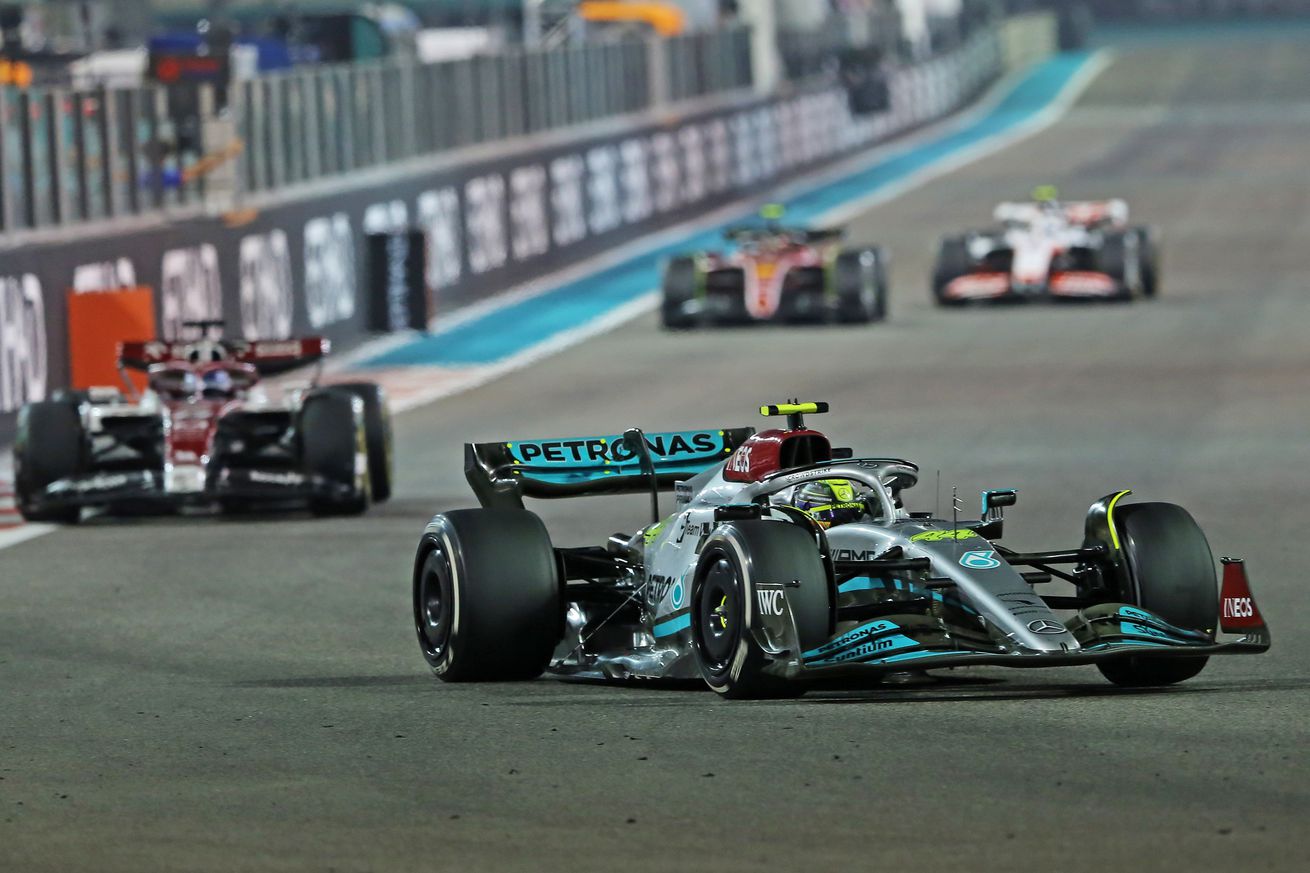Photo by Heuler Andrey/Eurasia Sport Images/Getty Images
Diving into the rumors of a potential sale, and the subsequent fallout
It is rarely dull in the world of Formula 1. Between driver silly season, this year’s team manager silly season, the growth of the sport worldwide, and recent storylines about potential expansion, F1 has been in the news a lot lately.
But the most recent news surrounding F1 deals with the future of the sport from a business perspective.
According to recent reporting, the Saudi Arabian Public Investment Fund (PIF) made an aggressive offer to purchase F1 from Liberty Media. In a report from Bloomberg, the PIF approached Liberty Media last year, placing a valuation on F1 of $20 billion.
The report from Bloomberg noted that while Liberty Media — which purchased F1 back in 2016 — rejected the offer, PIF remains “interested in the asset.”
Liberty Media acquired F1 during 2016, with the sale being finalized at the start of 2017. At the time, F1 was valued at $8 billion, and the purchase price was $4.4 billion.
According to Bloomberg, the offer from PIF came in at $20 billion.
These reports touched off another firestorm of commentary, starting with Mohammed Ben Sulayem, the president of the FIA. FIA’s president took to Twitter to push back on the reported price tag for F1, referring to it as “inflated:”
As the custodians of motorsport, the FIA, as a non-profit organisation, is cautious about alleged inflated price tags of $20bn being put on F1. (1/3)
— Mohammed Ben Sulayem (@Ben_Sulayem) January 23, 2023
He continued to say that “[a]ny potential buyer is advised to apply common sense, consider the greater good of the sport and come with a clear, sustainable plan – not just a lot of money.”
The social media posts from the president of FIA — the governing body of motorsport — drew a harsh rebuke from both Liberty Media, and F1 itself. In a letter sent to the FIA from F1’s chief legal officer Sacha Woodward Hill, and Liberty’s chief legal officer Renee Wilm, the comments from president Ben Sulayem were “unacceptable,” and “overstep the bounds of both the FIA’s remit and its contractual rights.”
Copies of the letter were provided to both BBC News and Sky Sports.
The letter also referenced an agreement between F1 and FIA, wherein F1 “…has the exclusive right to exploit the commercial rights in the FIA Formula One World Championship”
In their view, the comments from president Ben Sulayem encroached on those commercial rights: “Further, the FIA has given unequivocal undertakings that it will not do anything to prejudice the ownership, management and/or exploitation of those rights. We consider that those comments, made from the FIA president’s official social media account, interfere with those rights in an unacceptable manner.”
The letter concluded with the warning that FIA would be liable if the comments “damage the value of Liberty Media Corporation.”
All of this comes with some very important backdrops. First, the continued growth and expansion of F1 worldwide. As has been well documented here, and elsewhere, the sport has grown over the past few years, and is seeing expansion into the United States. This season, F1 will have three races in the United States, including the debut of the highly-anticipated Las Vegas Grand Prix.
In addition, the reporting comes during a period of PIF expansion into the sporting world. The PIF recently purchased Premier League club Newcastle United, and the club is seeing its most successful run of play in years this season. PIF is also financially backing the newly formed LIV Tour, and the PIF has also made a big investment in golf’s Asian Tour. The relationship between the PIF and the LIV Tour is currently a matter of litigation.
Then there are the reports that the PIF is seeking to purchase WWE.
Finally, as discussed here during the rumors of a WWE sale to PIF, is the matter of sportswashing. As outlined in that piece by our own James Dator:
This is the process by which a nation uses entertainment, predominantly sport, as a vehicle to reform a public image. Significant investment, often far above “accepted” market rates, is made into a team, league, or sport as a whole — with an expectation that in exchange the beneficiary will help perform public relations for Saudi Arabia.
In recent years, Saudi Arabia has diversified beyond its reliance on oil revenue, and expanded into other areas including the sporting world. All as part of a strategy to soften the nation’s image worldwide, That includes the expansion of F1 in Saudi Arabia, with the first Saudi Arabian Grand Prix in 2021.
And now, perhaps the acquisition of the sport itself.













